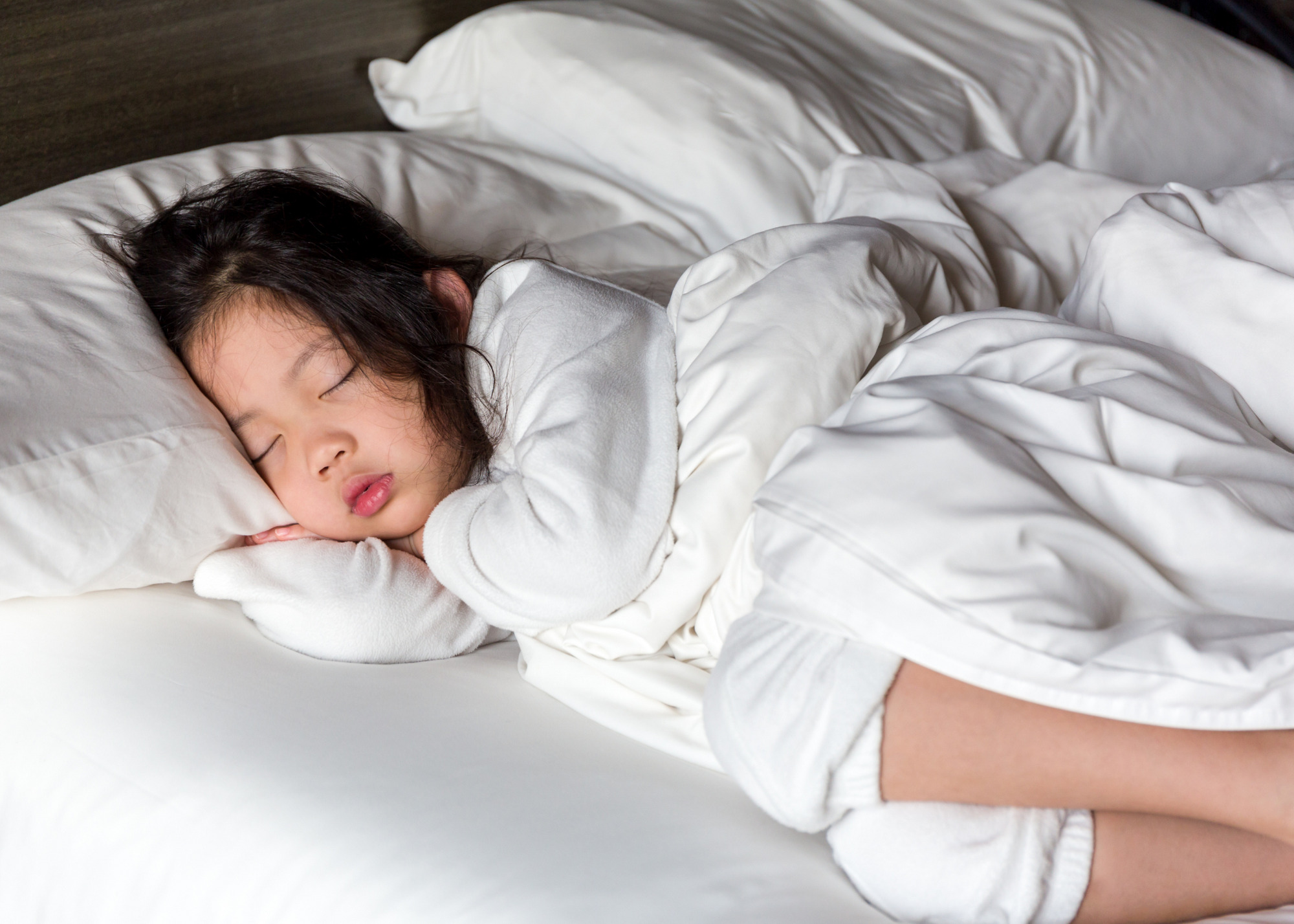Sleep Disturbances in Kids Are On the Rise
When we first wrote about COVID-19 wreaking havoc on people’s sleep, we certainly didn’t think we’d still be writing about it 10 months later. But, here we are. As we stand firmly in the second wave of this pandemic, it’s tough to hear about how many people are struggling, kids included. There are so many uncomfortable elements to the state of daily life right now, but the one that grabs our attention is the rise in sleep disturbances being experienced by children.
As we’ve mentioned many times before, sleep is so critically important. Not only does it help with short term and long term physical well-being, but quality sleep also supports mental health, the ability to focus, patience level and in the simplest terms, how well you can get through the day.
Sign Up For Our Newsletter
As the next few months will still be far from typical, it’s important to take a hard look at how your kids are sleeping to ensure they’re set up to handle these continued challenging times as best as possible.
The Second Wave of Sleep Disturbances
When the COVID-19 pandemic first hit, parents started noticing that their kids weren’t sleeping as well. Even if you tried to shield them from all the uncertainty that came along with the virus, kids still worried about getting sick, changes to their routine and their visibly stressed out parents. Kids with anxiety, in particular, are currently struggling with bedtime even more than ever before.
As a result of the current state of life, we know that kids are finding it harder to get the sleep they need, and in fact, we’re now noticing a second surge of sleep issues in our kids. While some of the same worries can be blamed for keeping kids up at night, there’s been some new factors that have recently come into play too.
During the second wave of the pandemic, here are some of the reasons why sleep disturbances in kids are on the rise:
- Changes in school delivery, again. In many places around the globe, in person schooling is now suspended until further notice. Just this past week, many Ontario schools learned they would not be returning to in person learning for at least another few weeks. Change in routine can be hard on kids of all ages. From worrying about adapting to learning from home to missing seeing friends and teachers in person, the stress of this change is causing them to worry more and sleep less.
- While many students have been learning virtually since September, the closing of schools has sent thousands of additional kids back to their home computers. This has put increasing pressure on technology, which as we know, doesn’t always work the way we need it to. We’ve heard multiple stories of kids being very stressed at missing a lesson if they can’t connect, worried that it’s only them getting disconnected from an online lesson, anxious that they won’t be able to hand something in on time, etc.
- Uncertainty. While this factor has been present since the start of COVID-19, its prevalence has increased again in the last few weeks. Over the summer and into early fall, the world seemed a bit lighter, didn’t it? It was easier to get outside, the number of infections was lower and we may have all started to cling to a little bit of false hope. Unfortunately, it almost seems like we’re back to square one with so many things feeling uncertain again. And that can be hard to explain to kids and even harder for them to process.
- With the colder weather and directives to stay home as much as possible, kids are back to sitting way too much, with not nearly enough exercise or fresh air. Add in the amount they’re in front of screens for school, connecting with friends and general entertainment (let’s be honest, there’s not much else to do!) and their bodies are having trouble building up their natural sleep drive.
- Jarring and tough to hear news has now been happening around the world for a steady 10 months. The longevity of the negativity is triggering more abnormal dreams and scary nightmares which are big sleep disruptors. Even though kids may not watch the news directly, it’s tough for them to tune it out completely, resulting in more recurring nightmares in school aged kids.
Help Protect Your Kid’s Sleep During Stressful Times
There are many things we can’t change in our world right now, but there are things you can try to help get your child’s sleep back on track if you’ve noticed they’re struggling.
1. Ask for what they need. If you’re noticing that a full day of online learning is having negative effects on your child’s sleep, let your teacher know. Ask if it’s possible to build in more breaks or to have a longer lunch period – both of which will provide more time away from a screen and more time to move and get outside.
2. Find a way to manage your own stress. We know that parents are suffering from empty tanks when it comes to patience and positivity, but your stress levels will undoubtedly effect your kids. Go back to basics and be sure to build in some restorative time to help you reset. From stretching to journaling or taking a hot bath, let yourself relax and be still in an effort to reduce your stress and make your home a calmer place for your kids.
3. Make sure kids are getting outside during school break times, weather permitting. This is so important to help build their sleep drive and to keep their natural circadian rhythm in check. For older kids who may be less than thrilled to head outside, sit down and explain to them why it’s important. Giving them more in depth information and sharing the ‘why’ can help you get better buy in.
4. Stick to a bedtime routine. Daytime schedules and day to day life feels so uncertain so it’s important to keep bedtime routinesas consistent as possible. Kids especially thrive off the consistency and comfort in knowing what’s happening next and undoubtedly need that time to connect with you more than ever. If you notice more anxiety around bedtime, try adding meditation exercises for kids.
5. Stick to a sleep schedule. While the bedtime routine is important, so is the actual bedtime. It can be tempting to let schedules slide, but going to sleep and waking around the same time every day makes it much easier to get quality sleep at night as your body knows what to expect. Particular attention should be paid to tweens and teens who often start to gravitate towards really late nights.
Focus On Sleep Success
Life is overwhelming right now and that can make it hard to find a place to start if you’re looking to make positive changes for your family. The good news is, making sleep a priority will actual help make it easier to improve life in other areas too. When kids are well rested, they’ll have more energy for exercise, more interest in trying a new game or hobby, more bandwidth to make it through the online school day and more patience to handle life’s complications.
If you’ve noticed that sleep disturbances are on the rise in your home, don’t panic. Take the time to delve into what could be causing the issue and try some of the tips we’ve listed above. With a little focus, you can get sleep back on track so that everyone in the family is better equipped to handle these challenging times.
Need some help to with your family’s sleep? Contact us to learn more about our support packages. We’re still providing email and phone support during the COVID-19 pandemic.






